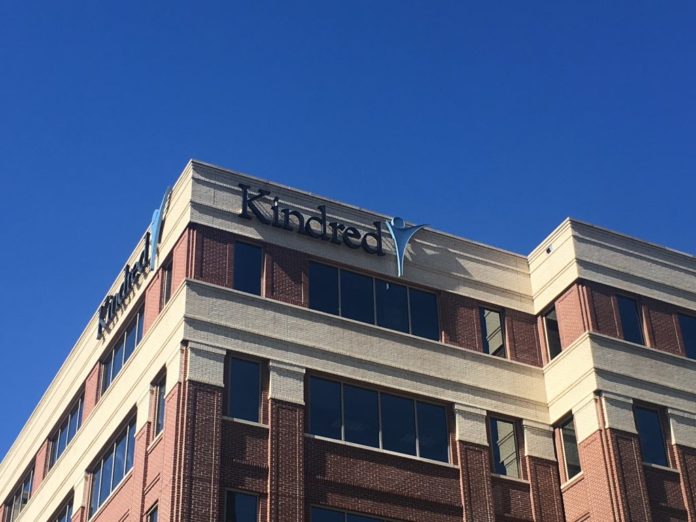Value creation is the name of the game in Humana’s (NYSE: HUM) deal with two private equity firms to acquire Kindred Healthcare (NYSE: KND) for approximately $4.1 billion, William Fleming, Humana’s president of health care services, told Home Health Care News.
The deal, in which Humana and TPG Capital and Welsh, Carson, Anderson & Stowe (WCAS) arranged to pay $9 in cash per share of Kindred common stock, was announced Tuesday. It is expected to close in about four to six months, according to Fleming, and will separate Kindred At Home—which operates 609 home health care, community and hospice care locations—from Kindred’s hospital and rehabilitation business.
“The transaction represents a significant step forward in transforming home health care in America, as we expect it to enhance access to care and reduce costs for people living with chronic conditions,” David Causby, executive vice president and president of Kindred at Home, said in a statement emailed to HHCN.
The goal is to pivot both Humana and Kindred At Home, currently the nation’s largest home health and hospice care provider, to transforming care in the home to reduce friction points between home health and payers, Fleming explained.
“How do we really advance stronger care in the home so that seniors with chronic conditions have better health outcomes?” he said. “And so along the way what we’re looking to do is really create a strong culture around ‘test and learn’ that will advance things from a disease perspective and a technology perspective.”
Built for results
Under terms of the deal, Humana will own 40% of the operations of Kindred at Home, while TPG and WCAS will own the remaining 60%. Humana is set to pay about $800 million for its stake, and has a path to full ownership of Kindred’s home care business in three to five years. The private equity firms can require Humana to purchase their interest in the joint venture beginning at the end of the third year and ending at the end of the fourth year after the deal closes. Humana has a call option whereby it can require TPG and WCAS to sell beginning at the end of year four and ending at the end of year five post-close for cash consideration.
Humana had been on the hunt for a home health acquisition for some time, with executives stating in quarterly earnings calls their desires to reduce costs by taking care of their customers at home. The structure of the deal was done very deliberately, Fleming told HHCN.
“We’re working more on value creation,” he said. “How do we improve health, how do we get to the health outcomes, how do we do all the things I just described, so we don’t have to worry about ‘how do we integrate?’ Both of our organizations are laser-focused on value-creation [on] day one, not integration day one. That integration discussion is many years down the road.”
Causby will serve as CEO of Kindred at Home, and the specialty hospital company, Kindred Healthcare, will be providing support functions for Kindred at Home for a transitional period. Benjamin Breier, president and CEO of Kindred, will serve as CEO of the specialty hospital company.
“We believe both companies have a lot to offer and a lot to give, and we don’t want to distract ourselves with integration,” Fleming said. “We want to be—every day when we show up as this deal comes to close—focused on this value-creation conversation.”
The deal is consistent, however, with what’s been seen in terms of vertical integration for managed care players, Frank Morgan, managing director of health care services equity research at Nashville, Tennessee-based global investment bank RBC Capital Markets, told HHCN.
“There is this wave of vertical integration where payers are acquiring assets in the outpatient setting,” Morgan said. “Payers aren’t necessarily interested in buying hospitals, but they are interested in buying assets and service lines that can keep their enrollees out of hospitals. Home health care is a very logical part of that.”
One concurrent example of this vertical integration is the recently announced $69 billion merger between CVS Health (NYSE: CVS) and Aetna (NYSE: AET), which aims, in part, to expand home- and community-based services once the deal closes.
Prepared for the future
The insurer’s Humana at Home division has focused on care coordination and better care management, Fleming said. But it’s had some bumps along the way, with hundreds of layoffs and a net loss of $401 million in the fourth quarter of 2016. The additions from Kindred at Home, however, could enhance Humana’s efforts in coordination of care.
“The awesome thing that comes to life with Kindred at Home capabilities is advancing not only beyond care coordination and care management but also including care delivery,” Fleming told HHCN. “It’s how those three things come together that will really advance the goodness around health outcomes and quality.”
Humana’s strengths, however, will come into play as Medicare moves to a value-based purchasing model over time, Morgan said.
“Over time, as the world really continues to evolve into value-based purchasing, that just happens to coincide with where Humana has some options to buy out their majority partners over the next four or five years,” he noted.
Carlo Calma contributed to reporting of this story.
Written by Maggie Flynn




